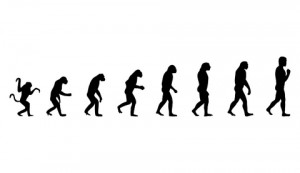The question at hand is, who decides what you find on the web? I recently read Regulating the Information Gatekeepers about search engines. This article focused mainly on commercial implications of search engines changing their rules, and the ongoing arms race between companies that sell the service of tweaking web pages and links and click farms to optimize search engine ranking positions, and the search engines trying to filter out such bare toadying in favor of actual useful pages.
On my MrTitanium.com site, I ignore all those search engine games and just provide solid content and current items for sale. In 2002, MrTitanium was usually in the first dozen results when Googling for "titanium jewelry". In 2003, Google decided that the number of links to a page was the primary sign of its usefulness. Within days, link farms popped up, and my site dropped from view. I waited it out, and in 2004, Google changed the rules again, and MrTitanium reappeared in the top 30. Top five for "titanium earrings".
But the real question is, should someone be regulating these gatekeepers of information? Who decides whether a search for "antidepressants" should feature vendors, medical texts, or Scientology anti-psychiatry essays?
There are two ways to censor information: Try to block and suppress it, or try to bury it. The forces of disinformation and counterknowledge are prolific and tireless. A search engine could (intentionally or inadvertently) favor certain well represented but misleading positions (such as Truthers or anti-vaxxers) over proven science, and give all comers the impression of validity and authority to "bad" ideas.
But the question of regulation is a dangerous one. The best access to information is open. But if a well meaning legislature decides that there needs to be an oversight board, this board could evolve into information police and be taken over by populist electors who choose to suppress good information.
On the other hand, the unregulated and essentially monopolistic search industry began with great ideals, and so far has been doing a good job at a hard task. But it, too, could become malignant if there is no oversight.
Another facet is, whose jurisdiction would this fall under? If the U.S. congress passes laws that Google doesn't like, they simply move offshore. There are designs for, and even prototypes of, data centers that float beyond any countries jurisdiction, powered by waves and sun, and connected via fibers and satellites. If the U.N. starts regulating, then whose rules apply? North Korea? Iran? China? And who could enforce it?
The information revolution is just beginning: We do live in interesting times.

